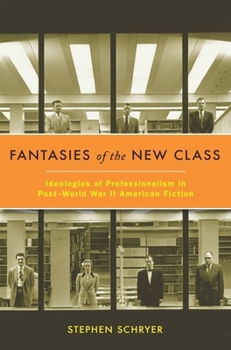Fantasies of the New Class: Ideologies of Professionalism in Postâ "world War II American Fiction
America's post-World War II prosperity created a boom in higher education, expanding the number of university-educated readers and making a new literary politics possible. Writers began to direct their work toward the growing professional class, and the American public in turn became more open to literary culture. This relationship imbued fiction with a new social and cultural import, allowing authors to envision themselves as unique cultural educators. It also changed the nature of literary representation: writers came to depict social reality as a tissue of ideas produced by knowledge elites. Linking literary and historical trends, Stephen Schryer underscores the exalted fantasies that arose from postwar American writers' new sense of their cultural mission. Hoping to transform capitalism from within, writers and critics tried to cultivate aesthetically attuned professionals who could disrupt the narrow materialism of the bourgeoisie. Reading Don DeLillo, Marge Piercy, Mary McCarthy, Saul Bellow, Ursula K. Le Guin, Ralph Ellison, and Lionel Trilling, among others, Schryer unravels the postwar idea of American literature as a vehicle for instruction, while highlighting both the promise and flaws inherent in this vision.
Format:Hardcover
Language:English
ISBN:0231157568
ISBN13:9780231157568
Release Date:March 2011
Publisher:Columbia University Press
Length:288 Pages
Weight:1.01 lbs.
Dimensions:0.8" x 5.6" x 8.3"
Age Range:22 years and up
Grade Range:Postsecondary and higher
Customer Reviews
0 rating





